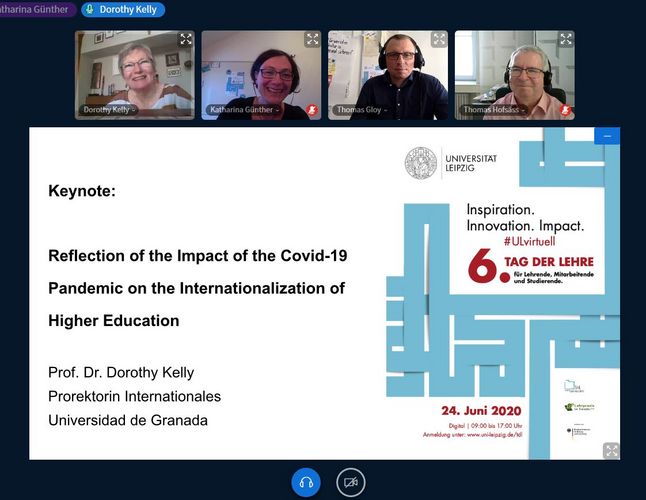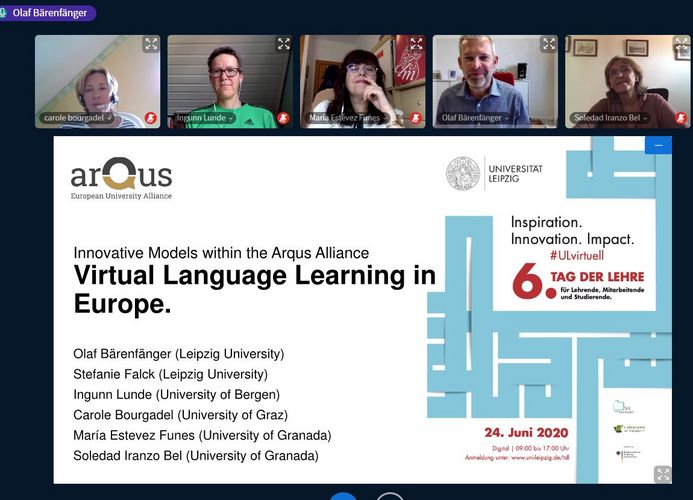Rector Beate Schücking and Vice-Rector for Education and International Affairs Thomas Hofsäss kicked off the Day of Teaching and Learning by jointly highlighting the characteristics of the planned digital programme. In particular, they focused on innovative projects for digital teaching and learning as well as international and virtual exchange.
After the introduction, Dorothy Kelly addressed the over 100 participants. The Vice-Rector for International Relations of the University of Granada and member of the Arqus Steering Committee highlighted the responsibility of universities during the coronavirus pandemic and described their current challenges. Even though there can be no physical mobility at the moment, exchange between partners is extremely important. Especially the relatively new Arqus network has great potential in this respect, as the seven partner universities bring different backgrounds and traditions to the network. Kelly sees this as an advantage, because traditional models and the knowledge gained from them need to be combined with current experiences in order to gain new forms of mobility and virtual exchange. “Together we can reflect on that and find a common language for this innovation.”
Following the introduction, participants were able to explore the digital terrain on their own and take part in various poster presentations. The poster session “Behind the Curtains of Joint Programmes” was led by Tabea Mager, who is responsible for international programmes at Leipzig University. She is also a member of the Arqus Steering Committee and of Arqus Action Line 3, which addresses the topic of joint programmes. Together with two colleagues, Mager highlighted the advantages of international study programmes and the processes behind them. She explained how Arqus can expand and enrich existing course projects.
Professor Olaf Bärenfänger, head of Action Line 4 “Multilingual & Multicultural University” (focus of Leipzig University), led the workshop “Virtual Language Learning in Europe”. Four speakers from the three Arqus cities Bergen, Granada and Graz presented innovative methods of teaching and learning. The lively discussions with regard to international approaches to teaching and learning revealed a strong interest in the topics presented and showed how profitable international exchange between several universities can be.
































































